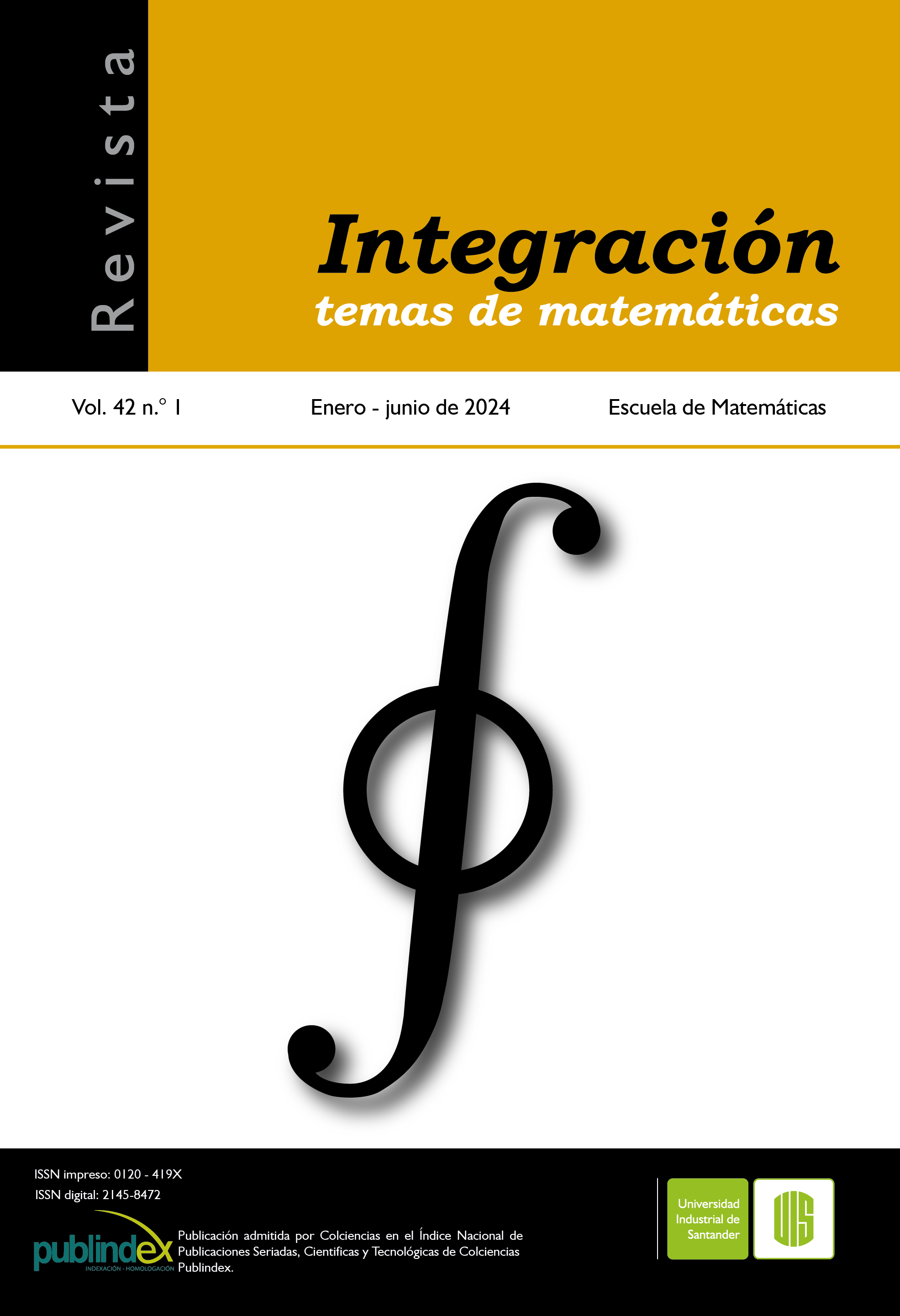Artículos científicos
Publicado 2024-05-16
Palabras clave
- Números de Fibonacci y Lucas,
- formas lineales en logaritmos,
- método de reducción
Cómo citar
Ibarra, S., & Rivera Martínez, L. M. (2024). Números de Fibonacci y Lucas de la forma -2^a-3^b-5^c+7^d. Revista Integración, Temas De matemáticas, 42(1), 43–50. https://doi.org/10.18273/revint.v42n1-2024004
Derechos de autor 2024 Revista Integración, temas de matemáticas

Esta obra está bajo una licencia internacional Creative Commons Atribución 4.0.
Resumen
En esta nota se encuentran todos los números de Fibonacci y de Lucas de la forma -2^a-3^b-5^c+7^d, en donde a, b, c y d son enteros no negativos con 0 ≤ max{a, b, c} ≤ d. Este resultado da respuesta a una pregunta de Qu, Zeng y Cao.
Descargas
Los datos de descargas todavía no están disponibles.
Referencias
- Baker A. and Davenport H., “The equations 3X^2 −2 = Y^2 and 8X^2 −7=Z^2”, Q. J. Math. Oxf., 20 (1969), no. 2, 129–137.
- Bravo J. J., Gómez C.A. and Luca F. “Powers of two as sums of two k-Fibonacci numbers”, Miskolc Math. Notes, 17 (2016), no. 1, 85–100.
- Bugeaud Y., Mignotte M. and Siksek S., “Classical and modular approaches to exponential
- Diophantine equations. I. Fibonacci and Lucas perfect powers”, Ann. Math., 163 (2006), 969–1018.
- Dujella A. and Petho A., “A generalization of a theorem of Baker and Davenport”, Quart. J. Math. Oxford, 49 (1998), no. 3, 291–306.
- García-Lomelí A. C. and Hernández S., “Powers of two as sums of two Padovan numbers”, Integers 18 (2018), Paper No. A84, 11 pp. .
- Hernández S. H., “The Fibonacci numbers of the form 2^a ± 2^b + 1”, Fibonacci Quart., 56 (2018), no. 4, 354–359.
- Hernández S. H., Luca F. and Rivera L. M., “On Pillai’s problem with the Fibonacci and Pell sequences”, Bol. Soc. Mat. Mex., 25 (2019), no. 3, 495–507.
- Qu Y., Zeng J. and Cao Y., “Fibonacci and Lucas Numbers of the Form 2^a + 3^b + 5^c + 7^d”, Symmetry, 10 (2018), no. 509, 7 pp. [9] Luca F., “Fibonacci numbers of the form k^2 + k + 2”, In Proceedings of the Applications of Fibonacci Numbers, Rochester, NY, USA, 22–26 June 1998; Kluwer Academic Publishers: Dordrecht, The Netherlands, Vol. 8, pp. 241–249 (1999).
- Luca F. and Szalay L., “Fibonacci numbers of the form pa ± pb + 1”, Fibonacci Quart., 45 (2007), 98–103.
- Luo M., “On triangular Fibonacci numbers”, Fibonacci Quart., 27 (1989), 98–108.
- Luo M. , “On triangular Lucas numbers”, In Applications of Fibonacci Numbers; Springer: Dordrecht, The Netherlands, 231–240 (1991).
- Marques D. and Togbé A., “Fibonacci and Lucas numbers of the form 2^a + 3^b + 5^c”, Proc. Japan Acad. Ser. A Math. Sci., 89 (2013) no. 3, 45–50.
- Matveev E. M., “An explicit lower bound for a homogeneous rational linear form in the logarithms of algebraic numbers II”, Izv. Math., 64 (2000), no. 6, 1217–1269.
- Sánchez S. G. and Luca F., “Linear combinations of factorials and S-units in a binary recurrence sequence”, Ann. Math. Québec, 38 (2014), 169–188.

